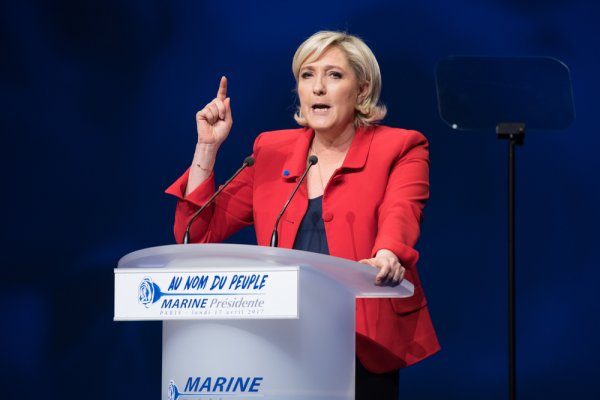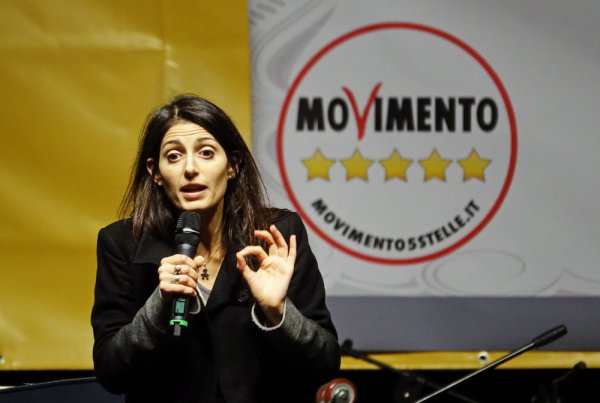The neoliberalism vs. populism conflict proposes a particular challenge for women. They have been naturally disposed towards neoliberalism, with their “The Personal is Political” slogan. At the same time, neoliberalism’s nudging women to become ‘professionals’ and seek ‘success’ above all else has placed them in a double-bind between career and family concerns.
Populism is, more than anything, a response to neoliberalism’s takeover of ‘old’ liberal democracy. Neoliberalism has uncoupled party politics from people’s everyday life. It has globalized, professionalized and personalized parties and governments to a degree and extent where ‘amateurs’ have entirely lost their significance and relevance for making and executing political decisions.
Neoliberalism’s nudging women to become ‘professionals’ and seek ‘success’ above all else has placed them in a double-bind between career and family concerns.
Populists were the first to see that neoliberalism was an attack on popular democracy, undermining the nation as the home of “We, the People”. The result is that the pendulum worldwide is now rapidly swinging away from Left vs. Right as the basic conflict and cleavage in society. Globalist neoliberalism vs. populist nationalism is becoming the new axis of political contestation and debate.
On the other hand, populism smacks of women’s constant historical fight against paternalism and male chauvinism from cradle to grave. The global/national divide is a deep threat towards peaceful development and democratic pluralism, but women can act on the crisis to become the motor of democratic innovation.

Marine Le Pen, a former candidate in this year’s French presidential elections, leads the populist, anti-immigration Front National party.
The ‘old’ parties show deep ambivalence as to how to deal with the globalism/nationalism divide, with the parties in Britain as the most pertinent example. However, they can’t have it both ways. They must renew democratic structures and find a fourth way to reconnect political ‘professionals’ and ‘amateurs’. Otherwise, the mutual trust and self-determination on which democracy relies will not be regenerated.
The global/national divide is a deep threat towards peaceful development and democratic pluralism, but women can act on the crisis to become the motor of democratic innovation.
Donald Trump’s presidential campaign slogans – “America First”, and “Make America Great Again” – clearly express the global/national opposition. Furthermore, Trump’s “I am your voice” and “Only I can fix” problems indicates that he sees himself as the very embodiment of people’s hopes, aspirations and fears. Trump speaks to ‘his people’ as children in need of a Strong Father.
Populism springs from the idea of the exceptional moral and political leader who rises to prominence and power in order to restore and protect the nation as the home of “We, the People”. It is a moral and nativist political response to the increasing globalisation, professionalisation and individualisation of national policy.
Somewhat shamefully, mainstream political theory and research did not see populism coming, just as they didn’t foresee the 1968 Youth Rebellion or the fall of the Berlin Wall.

Mayor of Rome Virginia Raggi, from the populist Five Star Movement (M5S), ran for office on an anti-establishment platform.
This is odd, given the widespread reports of escalating distrust in established politicians, political parties and democratic governments. New but fading social movements like the Indignados and Occupy Wall Street also recognise that a crucial dilemma for democracy lies in its neglect of laypeople’s political capacities to interrupt how ‘professionals’ authoritatively articulate, deliver and evaluate policies.
Populism’s main challenge to democracy, and to women in particular, is its potential to render them not just laypeople but ‘non-people’. Populism celebrates laypeople without offering them any real autonomy or integrity as political subjects of history.
Populism’s main challenge to democracy, and to women in particular, is its potential to render them not just laypeople but ‘non-people’.
Instead, the laypeople must depend for their sovereignty on an exceptional leader who can marshal them around a collective resistance identity and lead them in the struggle against the establishment.
The idea of the exceptional leader as the very embodiment of the ‘pure people’ doesn’t only deny laypeople a voice of their own. It also relegates those who don’t identify with the great leader to ‘non-people’ who must be kicked out from the home of ‘the people’.
(The panel discussion ‘Trust, Populism and the Ideal Politician’, will be held at the Museum of Australian Democracy (MOAD) 19th Oct, and is part of IGPA’s Parliamentary Triangle Seminar Series).




